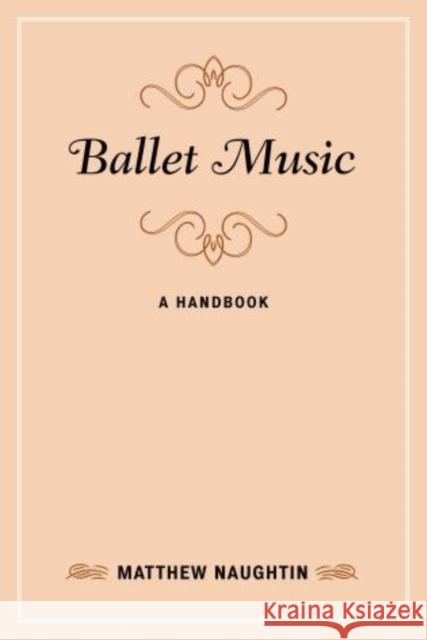Ballet Music: A Handbook » książka
Ballet Music: A Handbook
ISBN-13: 9780810886599 / Angielski / Twarda / 2014 / 470 str.
Ballet Music: A Handbook
ISBN-13: 9780810886599 / Angielski / Twarda / 2014 / 470 str.
(netto: 441,32 VAT: 5%)
Najniższa cena z 30 dni: 445,08
ok. 22 dni roboczych.
Darmowa dostawa!
Musicians who work professionally with ballet and dance companies sometimes wonder if they haven't entered a foreign country--a place where the language and customs seem so utterly familiar and so bafflingly strange at the same. To someone without a dance background, phrases and terms--boy's variation, pas d'action, apotheose--simply don't fit their standard musical vocabulary. Even a familiar term like adagio means something quite different in the world of dance. Like any working professional, those conductors, composers, rehearsal pianists, instrumentalists and even music librarians working with professional ballet and dance companies must learn what dance professionals talk about when they talk about music. In Ballet Music: A Handbook Matthew Naughtin provides a practical guide for the professional musician who works with ballet companies, whether as a full-time staff member or as an independent contractor. In this comprehensive work, he addresses the daily routine of the modern ballet company, outlines the respective roles of the conductor, company pianist and music librarian and their necessary collaboration with choreographers and ballet masters, and examines the complete process of putting a dance performance on stage, from selection or existing music to commissioning original scores to staging the final production. Because ballet companies routinely revise the great ballets to fit the needs of their staff and stage, audience and orchestra, ballet repertoire is a tangled web for the uninitiated. At the core of Ballet Music: A Handbook lies an extensive listing of classic ballets in the standard repertoire, with information on their history, versions, revisions, instrumentation, score publishers and other sources for tracking down both the original music and subsequent musical additions and adaptations. Ballet Music: A Handbook is an invaluable resource for conductors, pianists and music librarians as well as any student, scholar or fan of the ballet interested in the complex machinery that works backstage before the curtain goes up.











